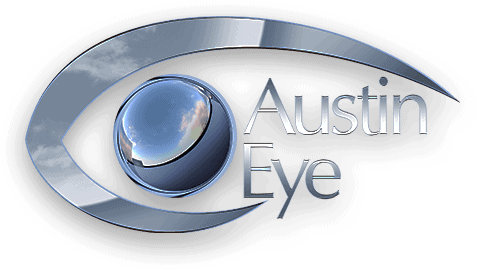
You may notice more issues with your eyes as the seasons change. Someone with dry eyes will experience worsening symptoms in the winter, while another with eye allergies struggles in the spring. The sun, humidity and other factors all play a role in your ocular health year-round. Our eye care specialists at Austin Eye can address your vision concerns.
Winter Weather and Vision
Even in Austin, we experience dropping temperatures and less humidity. When this happens, the cold winds and dry air dehydrate your eyes. Lubricating eye drops can improve symptoms along with a humidifier in your home or office to restore moisture. The wind and sun can worsen these dry eye symptoms but wraparound sunglasses can protect you from UV exposure and high winds.
People who wear contact lenses may struggle in the winter months because the material reduces oxygen to their eyes and interferes with tear production. In the winter, animal dander and dust mites are worst due to less air circulation and ventilation, leading to irritated, itchy eyes. These winter woes may be worse for older adults with decreased tear production and presbyopia.
The Effect of Spring and Fall on Your Eyes
We tend to be outside for much of the spring and fall months when allergens are plentiful. The pollen count is highest in the spring, and pet dander, dust and mold can trigger red, itchy and watery eyes. Even if you don’t experience the telltale signs of allergies such as sneezing and sinus congestion, you may still have eye allergies. Eye drops may help, as may a cold cloth over your eyes to alleviate puffiness. Antihistamines may relieve your symptoms, and you can block out the irritants by wearing wrap-around sunglasses outdoors.
In Autumn, UV light shifts and is more likely to harm the eyes. Shorter days mean driving in the dark, which can also strain the eyes due to the harsh glare from headlights.
Summer Eye Health Risks
There are several potential hazards for your eyes in the summer months. Sunglasses are paramount to protecting your eyes against UVA and UVB rays, which are linked to eye diseases such as cataracts and macular degeneration. Even cloudy days pose a UV risk, but 100 percent UV-blocking sunglasses can decrease sun damage.
Swimming, yardwork and summer sports are all possible problems for your eyes. If you wear contact lenses, make sure you do not swim with them as you risk an eye infection. Some parasites and bacteria in the water can damage your vision, even causing blindness in some cases, and your contacts hold water like a sponge. Practice eye safety when setting off fireworks, mowing your yard and playing sports such as baseball to avoid eye injuries and vision loss.
Schedule an Eye Exam in Austin
If it’s time for your annual eye exam, contact our eye care specialists at Austin Eye to schedule your appointment today by calling (512) 250-2020.







